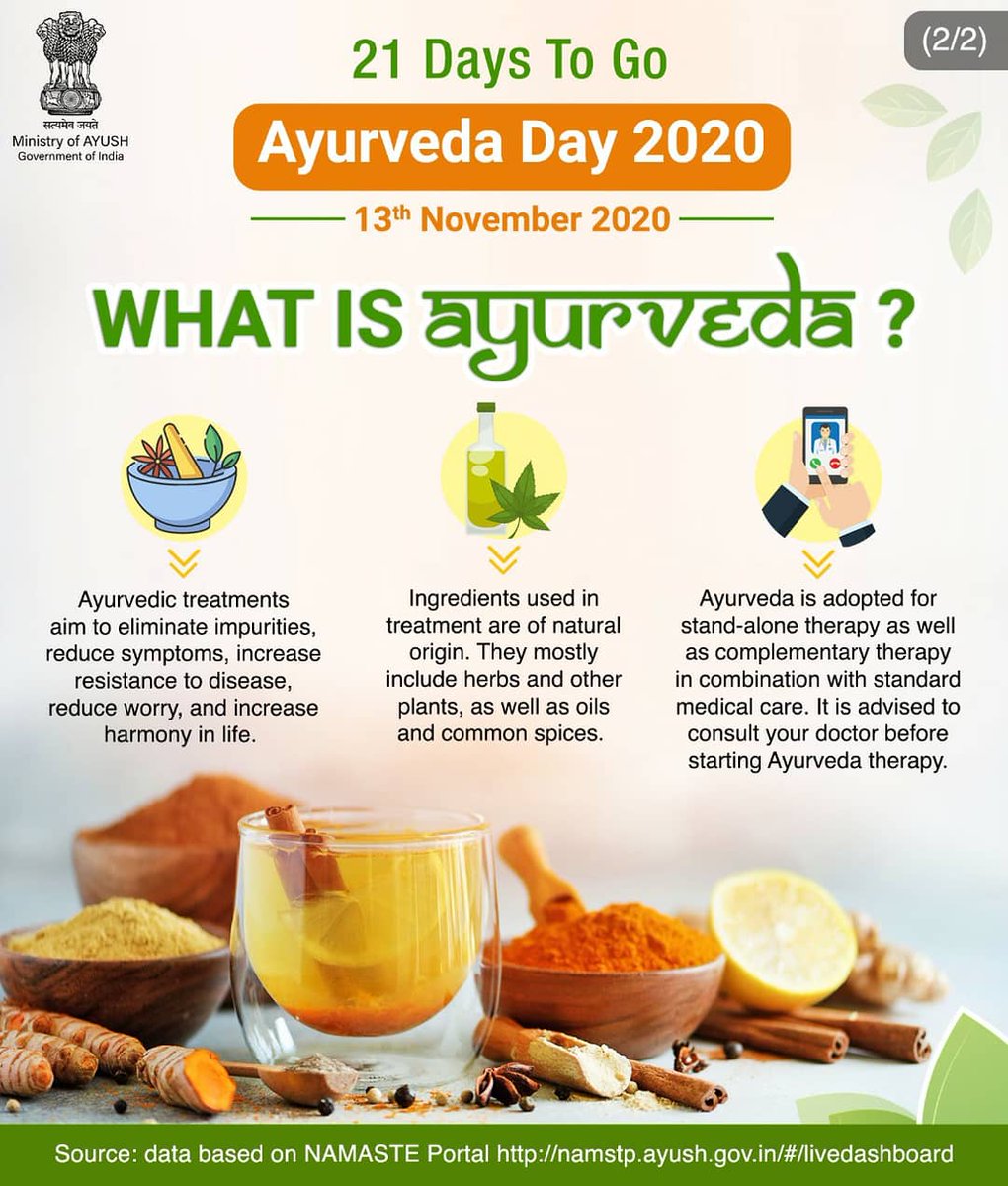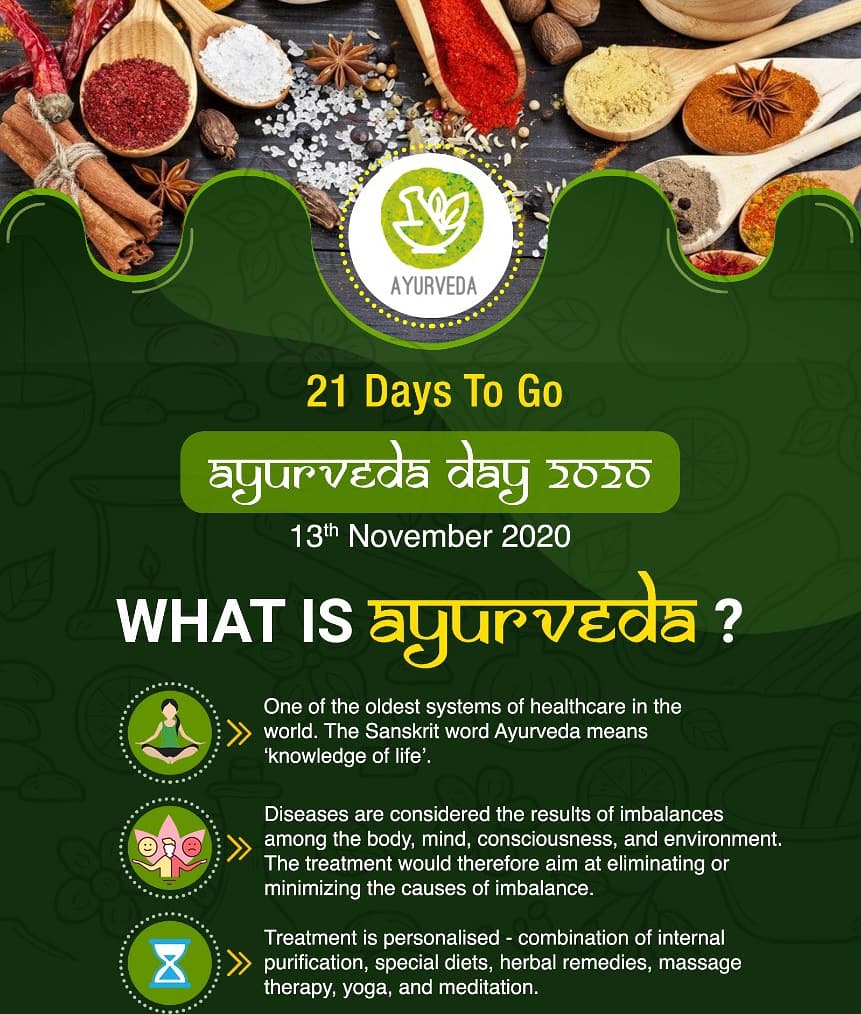What is Ayurveda?
#Ayurveda, a natural system of medicine, is widely considered by scholars to be the oldest #healthcare system. It originated in India more than 3,000 years ago. Some scholars place its antiquity to 5,000 years.
#Ayurveda, a natural system of medicine, is widely considered by scholars to be the oldest #healthcare system. It originated in India more than 3,000 years ago. Some scholars place its antiquity to 5,000 years.
The Sanskrit word #Ayurveda translates to knowledge of life.
According to #Ayurveda, disease is due to imbalances among the body, mind, consciousness, and the environment. The treatment would therefore aim at nullifying or minimizing the causes of imbalance. #Ayurveda
According to #Ayurveda, disease is due to imbalances among the body, mind, consciousness, and the environment. The treatment would therefore aim at nullifying or minimizing the causes of imbalance. #Ayurveda
encourages certain lifestyle interventions and natural therapies to regain the said balance.
Ayurveda treatment typically involves an internal purification process, followed by a special diet, herbal remedies, massage therapy, #yoga, and #meditation. The exact procedure is
Ayurveda treatment typically involves an internal purification process, followed by a special diet, herbal remedies, massage therapy, #yoga, and #meditation. The exact procedure is
finalising after evaluating the patient’s constitution and other relevant factors.
The basic principles of Ayurveda include the concepts of universal interconnectedness, the body& #39;s constitution (prakriti), and life forces (doshas).
Ayurvedic treatments aim to eliminate
The basic principles of Ayurveda include the concepts of universal interconnectedness, the body& #39;s constitution (prakriti), and life forces (doshas).
Ayurvedic treatments aim to eliminate
impurities, reduce symptoms, increase resistance to disease, reduce worry, and increase harmony in life. #Herbs and other plants, including oils and common spices, are used extensively in #Ayurvedic treatment.
Ayurveda is used also as a complementary therapy in combination
Ayurveda is used also as a complementary therapy in combination
with standard, conventional medical care in many countries. It is known to have positive effects in many such instances and even to have increased the efficacy of standard care.
It is advisable to discuss any Ayurvedic treatment that you intend to adopt with a qualified practitioner, especially if you are treating serious conditions. #AyurvedaDay #Ayurveda4Health

 Read on Twitter
Read on Twitter



